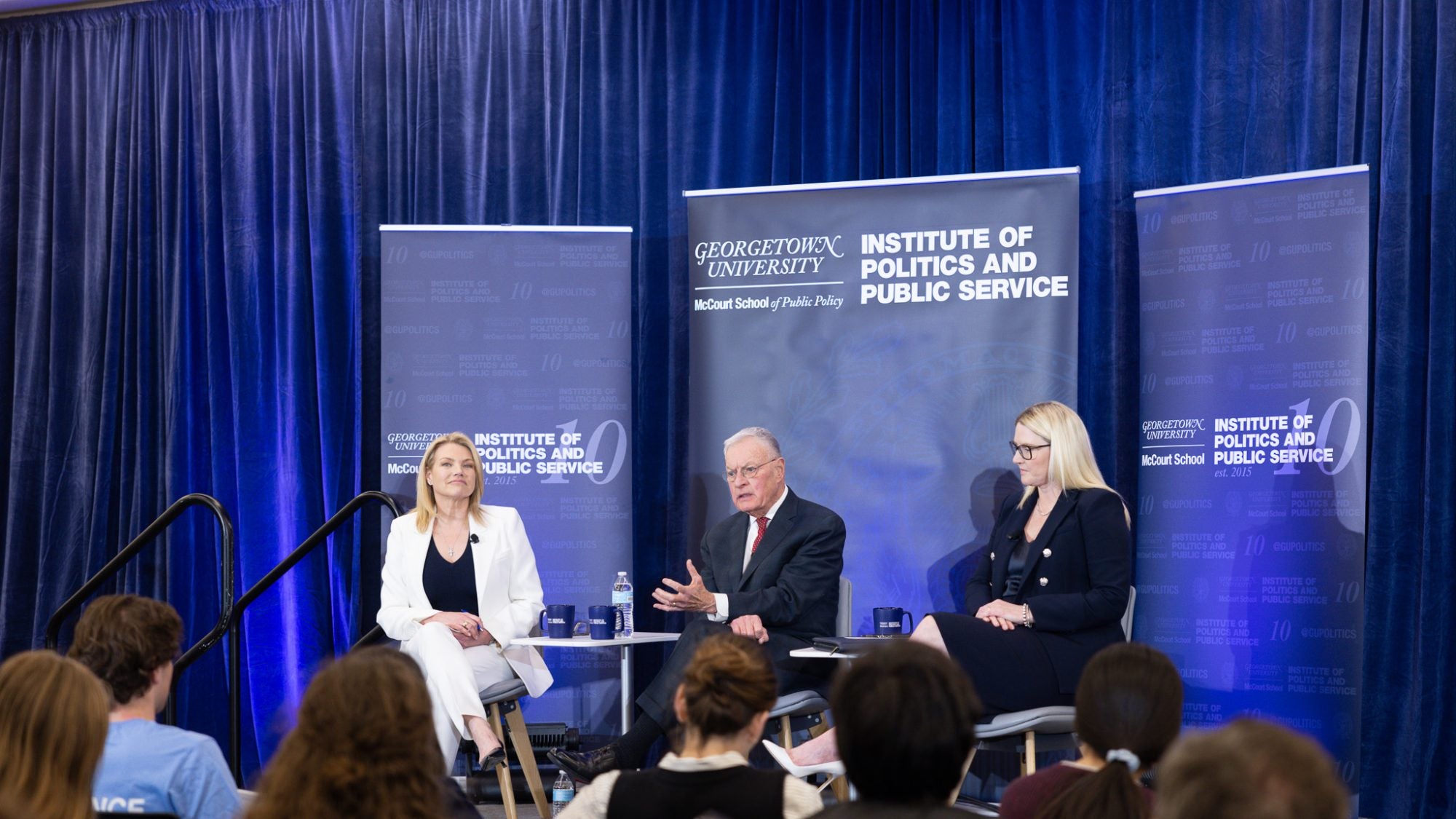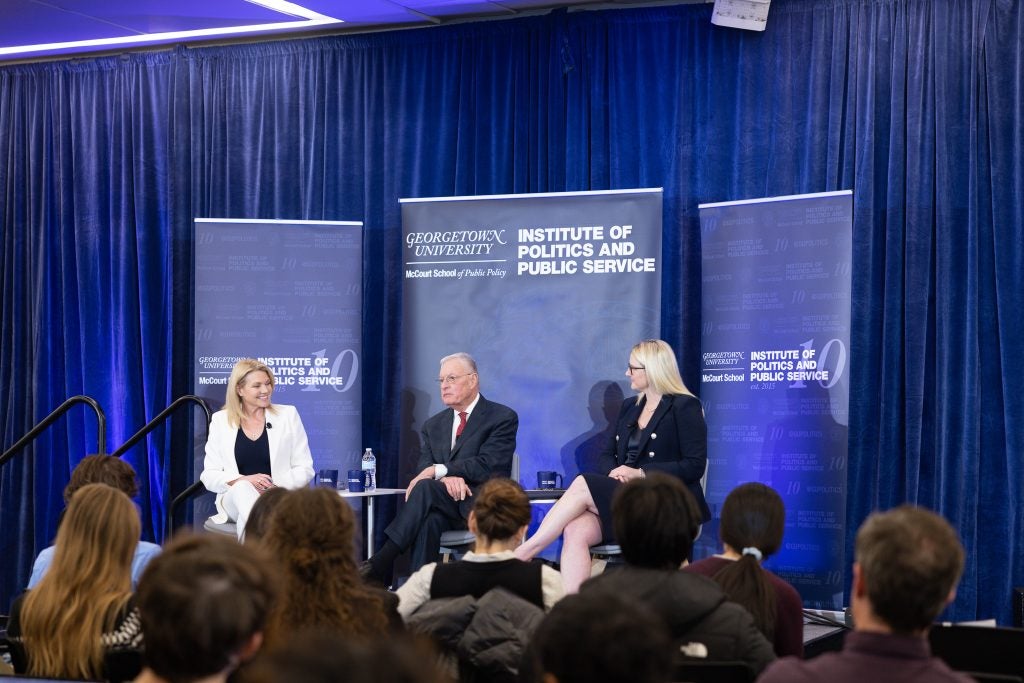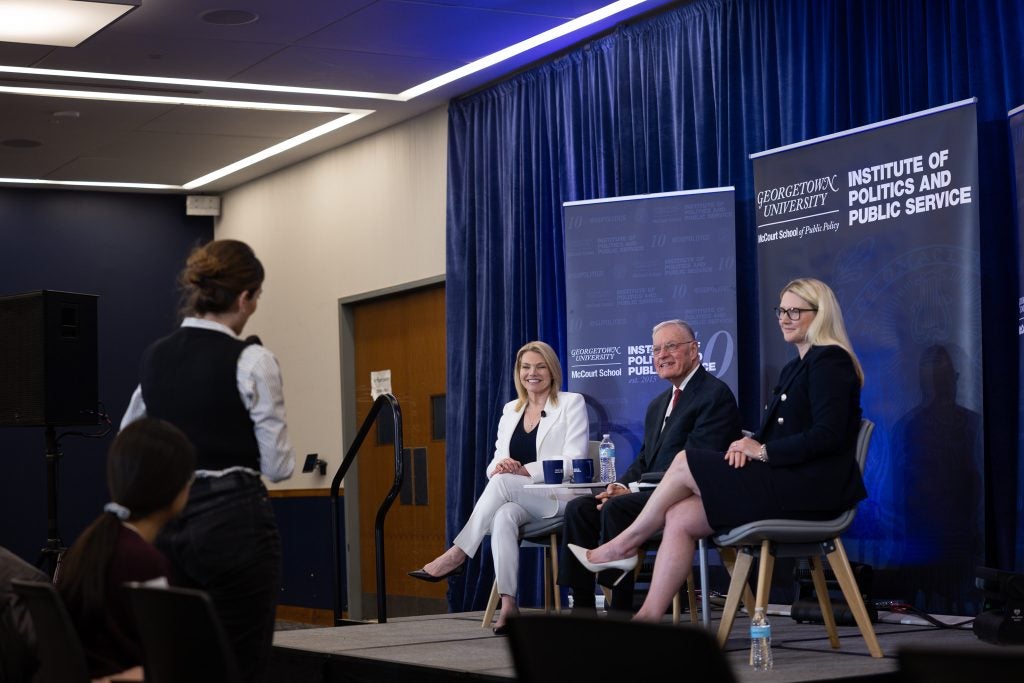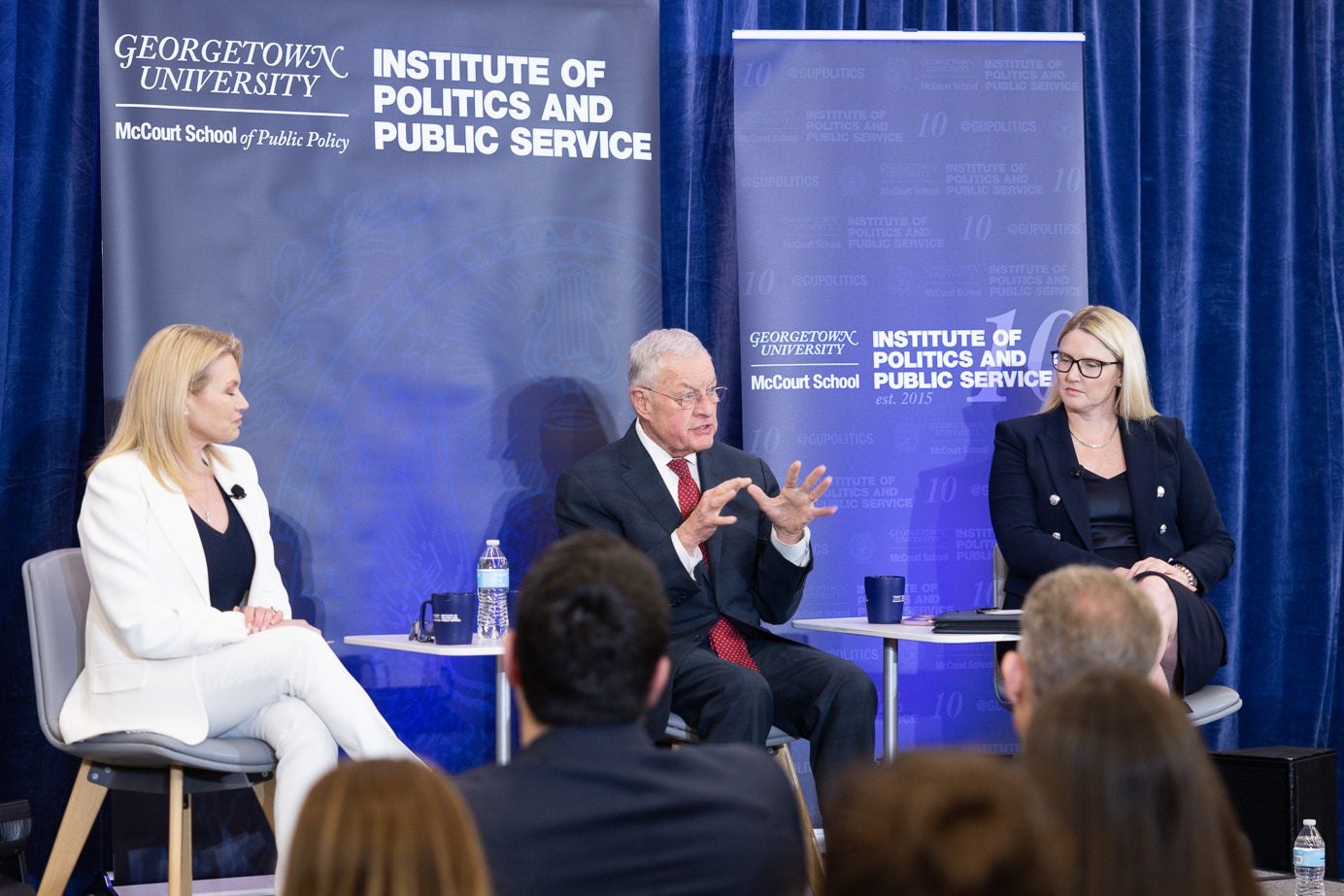On Wednesday, April 9, Georgetown community members attended a conversation with Lieutenant General Keith Kellogg, U.S. Special Envoy for Ukraine, on a crucial question in their minds: Is it possible for Russia and Ukraine to secure a peace deal with the help of the U.S.?
The conversation, hosted by Georgetown’s Institute of Politics and Public Service, was moderated by Heather Nauert, former State Department Spokesperson for the First Trump Administration and Spring ‘25 GU Politics Fellow, and Marie Harf, Former State Department Spokesperson for the Obama Administration and Fall ‘17 GU Politics Fellow. They discussed President Donald Trump’s approach to Russia-Ukraine and what the future could look like.
Nauert kicked things off by referring to news reports about the support Russia has received from China, North Korea and Iran. Addressing the students, Gen. Kellogg emphasized the importance of getting educated on these matters. He then proceeded to answer the question by underscoring the danger of such an alliance, adding that it is difficult to evaluate its future implications. For the present, he said, it means that Russia-Ukraine “is now a global issue.”
Gen. Kellogg also said that what we are seeing is “industrial level warfare,” given the massive damage that has been done. Here he developed the substance of his analysis: kinetic warfare refers to a form of combat that is directly destructive and seeks to inflict maximum damage to make the enemy desist. But because Russia is willing to “absorb” any number of casualties, this war needs to be approached differently — diplomatically and economically.
Gen. Kellogg established reaching a comprehensive ceasefire as an immediate priority and championed economic sanctions as the means to this end. Diplomacy is nevertheless at work because dialogue is taking place, Gen. Kellogg said, which has given him a “glimmer of hope.” He clarified that for a peace accord, the negotiation table must seat the leaders of these nations, not their representatives.
Another segment of the discussion was prompted by Nauert and Harf asking Gen. Kellogg to shine some light on President Trump’s leadership style. Gen. Kellogg called Trump’s decision making “dynamic,” praising his ability to reach out and talk to his allies and adversaries in the context of negotiations.
Gen. Kellogg spoke about the importance of making sure that Ukraine retains its sovereignty and cited Trump discussing the value of national sovereignty in the past.
The floor was then opened up to student questions and Gen. Kellogg clarified that he did not speak for the President. One student asked after the involvement of Europe in the negotiations. Gen. Kellogg defended the policy of doing separate negotiations on the rationale that Russia is now willing to talk because NATO membership for Ukraine has been removed from the equation. He affirmed that European nations are nonetheless being heard.
Another student asked what security guarantees the U.S. would provide to Ukraine to ensure lasting peace. Gen. Kellogg suggested following the example of Poland as a possible strategy. This would mean helping Ukraine increase its military power which would serve a deterrence purpose.
To close the discussion, a student worried about Russian interference around the world and the danger it represents for the democratic reconstruction of Ukraine. The student asked what steps the U.S. is taking to stop this. We are not,” Gen. Kellogg said. He argued that Russian attempts at interference will never stop; rather than trying to stop them, it is better to build strong democracies that will survive those attacks. He still cautioned, however, that when the time comes for Ukraine to hold national elections, the U.S. must watch closely.
This article was written by Susy Terán, a sophomore in the College of Arts and Science.
Watch the full recording below.



